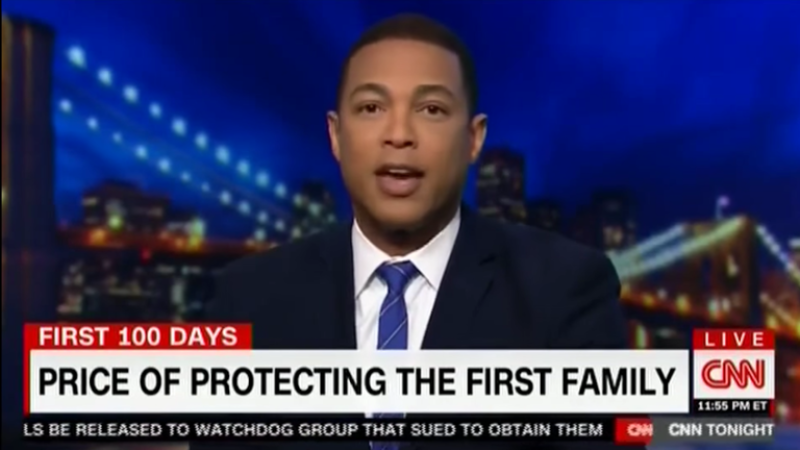The media bubble is real: Study shows massive disconnect between journalists, public
By: Opinion by Joe Concha,


This should come as no surprise............to anyone.

T o say there’s a disconnect between many journalists and the public they serve is a gross understatement, according to a new in-depth survey by the nonpartisan Pew Research Center.
Per Pew, 65 percent of the nearly 12,000 journalists surveyed say the media do a solid job of “covering the most important stories of the day” and reporting news accurately. But a solid majority of the American public at large has the opposite view, with just 35 percent feeling the same way. That’s a 30-point perception gap.
When asked if journalists manage and correct misinformation consistently, 43 percent of those in the industry said yes, while just 25 percent of the general public agreed.
Almost half (46 percent) of journalists said they felt connected to their readers and viewers, while just one-quarter of the public says they feel connected to the media outlets from which they get their news.
So why the disconnect? Perhaps it’s like the old saying about the key to good real estate: Location, location location. Most of the national media are located in two places: New York City and Washington, D.C.
In the 2020 election, just 9 percent of Manhattan voters voted for Donald Trump. In D.C., the Trump support was just 5.4 percent, underscoring that those who live in or near these cities exist in overwhelmingly liberal silos. It’s only human nature that a journalist’s perception of issues will generally conform to the places and people with whom he works and lives.
Longtime newsman Bob Schieffer dove into this subject a few years back, explaining just how insulated journalists have become.
“In 2004, one reporter in eight lived in New York, Washington, or Los Angeles,” Schieffer notes in his must-read book “Overload: Finding the Truth in Today’s Deluge of News.” “That number is now down to one-in-five who live in those three places.”
Schieffer saw another problem: The massive decrease of local reporters due to shrinking budgets.
He writes, “While no solutions seem obvious, there is general agreement throughout the industry that if local newspapers go away and some entity does not rise to do what we have come to expect of them—that is, keep an eye on local government—we will experience corruption at levels we have never seen.”
Since 2004, approximately 1,800 newspapers have shut down because of the collapse of print advertising and readers turning to more convenient online consumption. Fewer reporters and editors has resulted in less trust as news gathering becomes more and more confined to two or three cities.
Overall, according to Pew, just 29 percent of U.S. adults say they have at least a fair amount of trust in the information they receive. In 1976 in the post-Watergate era, trust in the media stood at 72 percent, or 43 points higher.
A perfect example of the disconnect between certain journalists and the public came from CNN anchor Don Lemon.
“At CNN, we don’t do opinion, we put the story out there and we try to stay in the middle of the road,” he claimed on air recently. In a related story, 93 percent of CNN’s coverage of Trump’s first 100 days in office was negative, according to a Harvard study, and it somehow got worse from there.
But during the same segment, Lemon offered this opinion: “There is one party, right now, that is not operating in fact, that has been misleading the American people, and that is the Republican Party.” The host went on to praise the Democratic Party for “standing up for democracy.” You can’t make this stuff up.
Nothing will change any time soon, either. More and more, local newspapers are cutting staffs as profits dwindle in the digital age. The result is that online news organizations almost exclusively headquartered in deep-blue New York or D.C. keep expanding.
Another finding from the Pew study may be the most revealing: When asked to characterize the journalism industry in one word, 74 percent of journalists applied a word with a negative connotation, including “chaos” and “struggling.” Other words applied included “biased,” “partisan” and “stressful.” Despite those descriptions, 77 percent of journalists surveyed say they would choose the same career all over again.
A 2013 study by University of Indiana journalism professors Lars Wilnat and David Weaver found that just 7 percent of journalists identify as Republican. In 2002, that number was 18 percent.
So if you’re a Republican interviewing for a job at The New York Times, which hasn’t endorsed a Republican presidential candidate in 66 years, or at The Washington Post, which has never endorsed a Republican presidential candidate, it would probably be a bad idea to share your party affiliation.
Such is the state of media in 2022, where the bubbles in the Big Apple and the nation’s capital are increasingly soundproof, shutting out the rest of the world.




Definitely a severe disconnect. Just like a majority of our politicians. Two peas in a pod.
T o say there’s a disconnect between many journalists and the public they serve is a gross understatement, according to a new in-depth survey by the nonpartisan Pew Research Center.
I think we can all agree that the Pew Research Center is non partisan.
Yep....................
LEAST BIASED
These sources have minimal bias and use very few loaded words (wording that attempts to influence an audience by using appeal to emotion or stereotypes). The reporting is factual and usually sourced. These are the most credible media sources. See all Least Biased sources.
The idea that these "journalists" manage and correct misinformation is laughable. Every media outlet has moved from reporting news to giving their opinions on what is going on and claiming that is the news. They've relegated themselves to bloggers.
Yep, gone are the days of just the facts.
And there are some people that get pissed when I refer to a "journalist" as a blogger.
Not giving a crap what some people think comes in handy.
I have fun with it.
Yes, newspapers have closed down in many markets...
The number of reporters has been declining for years.
There's too much Spiderman journalism. Peter Parker, the reporter, made headlines by photographing himself.
News organizations run polls and then publish all sorts of opinion pieces. Don't say journalists aren't creating the news. And as reporting becomes overly concentrated in La La Land all the news that is news becomes highly distorted. The demise of editorial oversight has only exacerbated the distortion.
Grossly distorted journalism is why we're seeing a dramatic increase in citizen journalism on social media. Concentrating news reporting inside a bubble has created a vacuum and social media allows that vacuum to be filled.